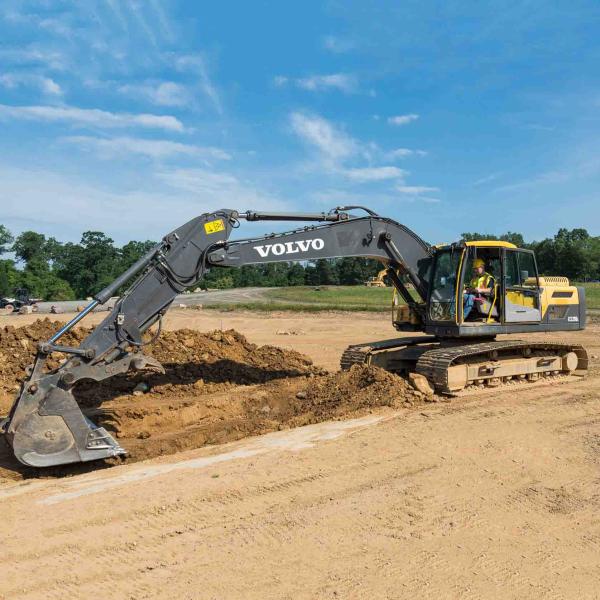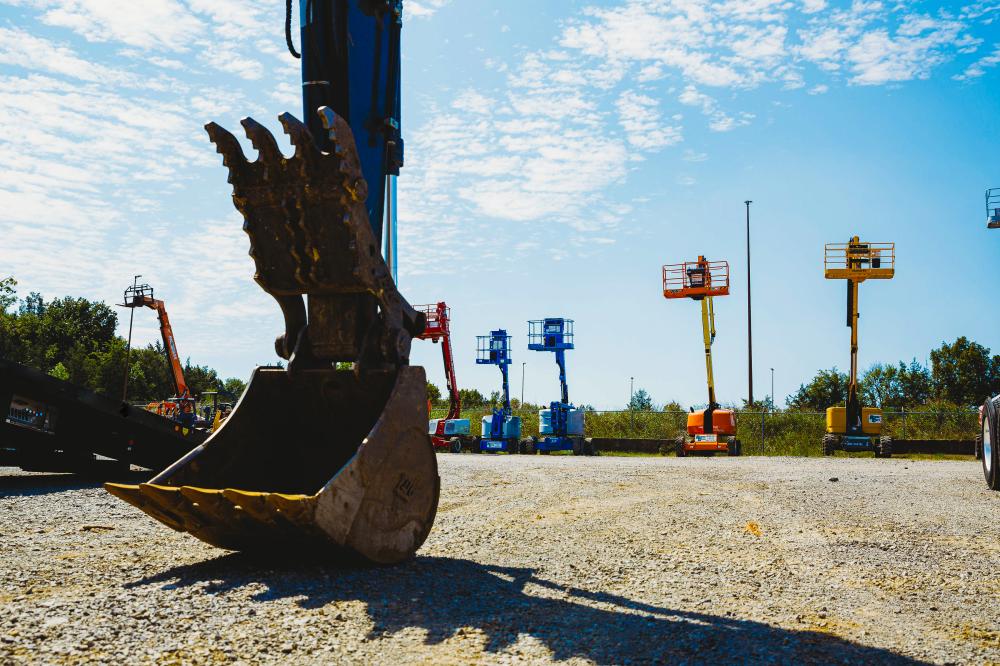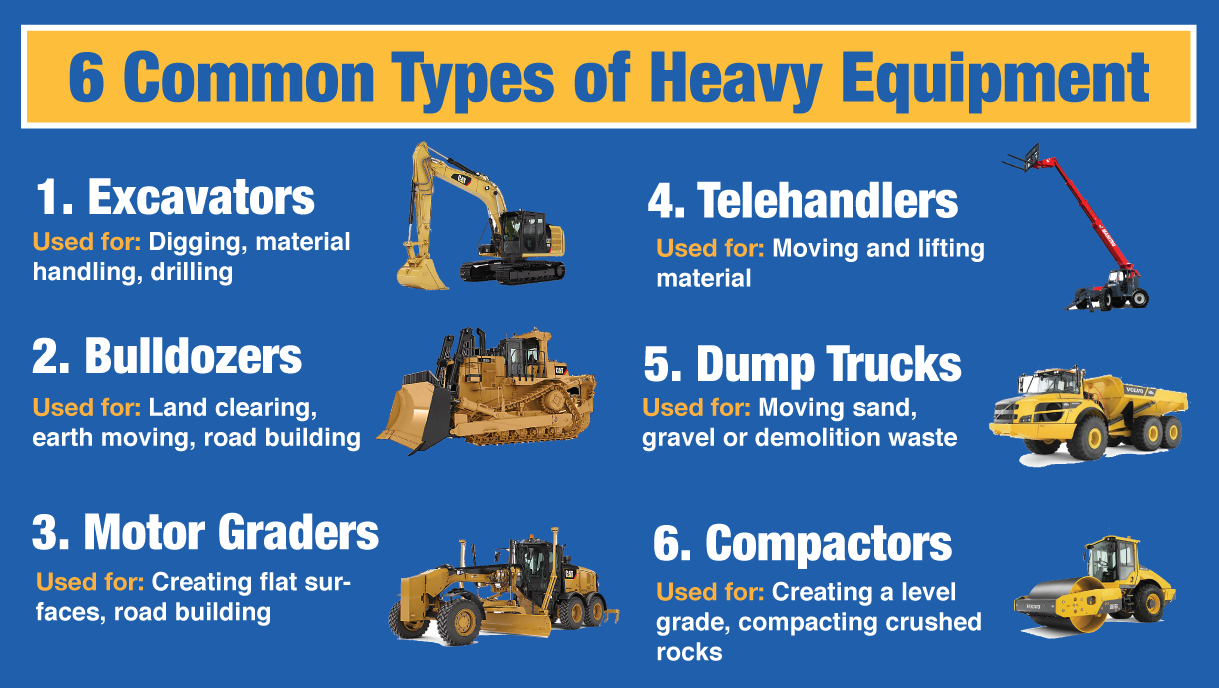Need Heavy Equipment Rental? Select Our Mini Excavator Rental and Boom Lift Rental Choices
Need Heavy Equipment Rental? Select Our Mini Excavator Rental and Boom Lift Rental Choices
Blog Article
Important Tips for Taking Care Of Heavy Tools Rental Arrangements and Logistics Properly
Effectively taking care of heavy devices rental arrangements and logistics is critical for the success of any type of task that depends on these sources. A thorough understanding of rental terms, coupled with exact assessment of equipment demands, lays the foundation for beneficial arrangements. Moreover, coordinating transport logistics and preparing for ongoing upkeep can substantially minimize unforeseen costs and hold-ups. The ins and outs of these aspects commonly present difficulties that call for critical foresight. What are the crucial considerations that can change these potential pitfalls into possibilities for performance and cost-saving?
Understand Rental Terms
Recognizing rental terms is important for successful heavy tools management. Knowledge with the particular terms of a rental contract can substantially affect operational performance and cost-effectiveness. Secret elements typically include rental duration, settlement structure, and upkeep responsibilities. The rental duration defines the timeframe for which the tools is leased, influencing budgeting and project timelines. Payment frameworks usually vary, incorporating daily, weekly, or monthly rates, which necessitate specific estimations to stay clear of unforeseen expenses.
Moreover, it is critical to comprehend the maintenance responsibilities described in the arrangement. Generally, rental firms preserve the tools, yet recognizing who is in charge of routine checks and repairs is important to protect against functional disruptions. Furthermore, terms might include stipulations worrying responsibility for problems or theft, which can have severe monetary ramifications otherwise appropriately comprehended.

Assess Tools Requirements
Examining tools demands is a vital step for any kind of job supervisor aiming to optimize source allotment and enhance functional performance. This procedure involves an extensive examination of the task needs, consisting of certain tasks, timelines, and the sort of tools necessary to achieve preferred end results.
Begin by recognizing the scope of the project and the tasks that will certainly be carried out. Take into consideration factors such as the surface, the range of procedures, and any kind of possible challenges that can affect equipment option. Engaging with team participants who will run the machinery can give useful understandings into useful needs and preferences.

Next, assess the capability and abilities of available devices options. It is necessary to match the right tools to the tasks available, making sure that it can manage the expected work without endangering safety or performance.
Furthermore, variable in the rental period and frequency of use. Understanding these components can help establish whether renting out or purchasing is the most cost-effective service. By conducting a comprehensive assessment of tools demands, job supervisors can make educated decisions that bring about improved efficiency and reduced operational prices.
Negotiate Successfully
Once the equipment demands are plainly recognized, the next step involves reliable arrangement with rental firms to protect favorable terms. A well-prepared arrangement method is vital for attaining the very best possible bargain. Begin by researching numerous rental companies to comprehend their pricing structures, stock schedule, and online reputation. This understanding will encourage you throughout negotiations and aid you develop reasonable expectations.
When coming close to the site negotiation table, be clear regarding your demands, including the kind of equipment, rental period, and any kind of added solutions you may need. This openness allows rental firms to provide customized remedies that can satisfy your certain requirements (dozer rental). Don't think twice to request discounts, specifically for long-term leasings or bulk orders, as several firms want to provide giving ins to protect bigger contracts
Furthermore, think about bargaining terms associated with maintenance, shipment, and insurance charges. These factors can significantly affect the total cost and should be clearly laid out in the rental agreement. Make sure that all agreed-upon terms are recorded in writing to avoid misunderstandings and secure your passions throughout the rental period. Effective settlement not just leads to cost savings yet likewise establishes a positive relationship with the rental firm.
Coordinate Transportation Logistics
Working with transportation logistics is a critical aspect of taking care of heavy devices rental contracts. Efficient transport makes sure that tools is delivered on schedule and in ideal condition, thereby reducing downtime and boosting job effectiveness. To achieve this, it is important to establish a detailed logistics prepare that outlines the whole transport process from pick-up to delivery.
Begin by analyzing the details transport needs based on the type and size of the devices included - scissor lift rental. Engage with dependable transport suppliers who specialize in hefty tools to ensure they have the required knowledge and devices, such as flatbed vehicles or specialized trailers. Go over variables such as weight limits, path limitations, and called for permits to stay clear of unanticipated hold-ups
Moreover, keep open communication with both the rental firm and the transport service provider to collaborate schedules efficiently. Verify all information, including pick-up and drop-off times, to guarantee everyone is straightened and prepared. Last but not least, establish contingency plans to address any type of possible disruptions, such as negative weather or traffic problems, which may influence the transport timeline. By diligently collaborating transport logistics, you can promote the stability of your rental agreement and assist in smooth job execution.
Prepare For Upkeep and Assistance

Moreover, it is vital to connect straight with the rental service provider concerning maintenance obligations. Some arrangements may include upkeep as component of the rental service, while in other cases, the onus might drop on the renter. Comprehending these terms will aid stay clear of unforeseen expenses and obligations.
In addition, having access to technical assistance can be important. Make sure that the rental firm supplies 24/7 support or an emergency situation call, enabling quick resolution of any kind of tools concerns. Educating your group on correct equipment use and regular checks can also substantially improve functional performance.
Final Thought
In conclusion, effective monitoring of heavy tools rental agreements here and logistics depend upon a detailed understanding of rental terms, precise evaluation of tools needs, and adept settlement abilities. Working with transportation logistics and intending for maintenance even more enhance operational effectiveness. By applying these techniques, companies can mitigate dangers, control prices, and make certain that projects progress efficiently and within well established timelines. Emphasizing clear interaction with all stakeholders continues to be important in browsing the complexities of equipment rental and logistics management.
Efficiently managing heavy equipment rental contracts and logistics is important for the success of any project go to the website that depends on these resources. By extensively evaluating and understanding these rental terms, organizations can make educated choices, reduce risks, and make sure that their heavy equipment management lines up with task objectives and financial restraints.Working with transportation logistics is an important element of handling hefty devices rental arrangements.In conclusion, efficient management of heavy equipment rental contracts and logistics joints on an extensive understanding of rental terms, specific analysis of devices needs, and proficient arrangement skills. Highlighting clear interaction with all stakeholders remains essential in browsing the intricacies of equipment service and logistics monitoring.
Report this page